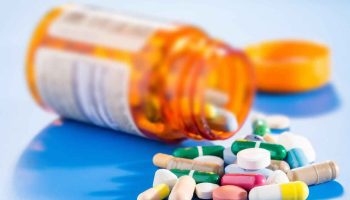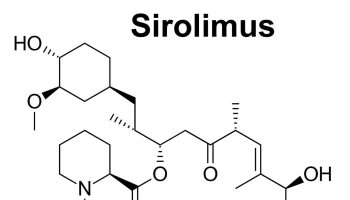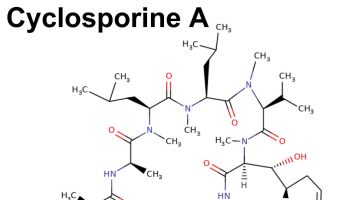Contents
Desipramine
Desipramine is an oral tricyclic antidepressant (TCA) that widely used to treat depression. Desipramine has been used off-label to treat bulimia nervosa, irritable bowel syndrome, neuropathic pain, overactive bladder, post-herpetic neuralgia, and ADHD 1. Desipramine hydrochloride is found in the medicine called Norpramin. Desipramine works by increasing the amounts of certain natural substances in the brain that are needed for mental balance. Desipramine acts by inhibition of serotonin and norepinephrine reuptake within synaptic clefts in the central nervous system, thus increasing brain levels of these neurotransmitters. Desipramine was approved therapy of depression in the United States in 1964. Desipramine is available only with your doctor’s prescription.
Desipramine is available in generic forms and under the brand names of Norpramin in 10, 25, 50, 75, 100 and 150 mg tablets to be taken by mouth with or without food. The usual recommended dose for depression in adults is 100 to 200 mg daily in one or two divided doses. Desipramine can also be given as a single nighttime dose. Your doctor may start you on a low dose of desipramine and gradually increase your dose. Take desipramine at around the same time(s) every day. Follow the directions on your prescription label carefully, and ask your doctor or pharmacist to explain any part you do not understand. Take desipramine exactly as directed. Do not take more or less of it or take it more often than prescribed by your doctor.
It may take 2 to 3 weeks for you to feel the full benefit of desipramine. Continue to take desipramine even if you feel well. Do not stop taking desipramine without talking to your doctor. If you suddenly stop taking desipramine, you may experience withdrawal symptoms such as nausea, headache, and weakness. Your doctor will probably want to decrease your dose gradually.
Desipramine common side effects include dizziness, headache, insomnia, somnolence, restlessness, confusion, gastrointestinal upset, increased appetite, weight gain, blurred vision, dry mouth and urinary retention.
A small number of children, teenagers, and young adults (up to 24 years of age) who took antidepressants (‘mood elevators’) such as desipramine during clinical studies became suicidal (thinking about harming or killing oneself or planning or trying to do so). Children, teenagers, and young adults who take antidepressants to treat depression or other mental illnesses may be more likely to become suicidal than children, teenagers, and young adults who do not take antidepressants to treat these conditions. However, experts are not sure about how great this risk is and how much it should be considered in deciding whether a child or teenager should take an antidepressant. Children younger than 18 years of age should not normally take desipramine, but in some cases, a doctor may decide that desipramine is the best medication to treat a child’s condition.
You should know that your mental health may change in unexpected ways when you take desipramine or other antidepressants even if you are an adult over age 24. You may become suicidal, especially at the beginning of your treatment and any time that your dose is increased or decreased. You, your family, or your caregiver should call your doctor right away if you experience any of the following symptoms: new or worsening depression; thinking about harming or killing yourself, or planning or trying to do so; extreme worry; agitation; panic attacks; difficulty falling asleep or staying asleep; aggressive behavior; irritability; acting without thinking; severe restlessness; and frenzied abnormal excitement. Be sure that your family or caregiver knows which symptoms may be serious so they can call the doctor if you are unable to seek treatment on your own.
Your healthcare provider will want to see you often while you are taking desipramine, especially at the beginning of your treatment. Be sure to keep all appointments for office visits with your doctor.
The doctor or pharmacist will give you the manufacturer’s patient information sheet (Medication Guide) when you begin treatment with desipramine. Read the information carefully and ask your doctor or pharmacist if you have any questions. You also can obtain the Medication Guide from the FDA website: https://www.fda.gov/drugs/drug-safety-and-availability/medication-guides
No matter your age, before you take an antidepressant, you, your parent, or your caregiver should talk to your doctor about the risks and benefits of treating your condition with an antidepressant or with other treatments. You should also talk about the risks and benefits of not treating your condition. You should know that having depression or another mental illness greatly increases the risk that you will become suicidal. This risk is higher if you or anyone in your family has or has ever had bipolar disorder (mood that changes from depressed to abnormally excited) or mania (frenzied, abnormally excited mood) or has thought about or attempted suicide. Talk to your doctor about your condition, symptoms, and personal and family medical history. You and your doctor will decide what type of treatment is right for you.
Desipramine mechanism of action
Currently, the most widely accepted theory of desipramine’s mechanism of action is that it blocks the reuptake of norepinephrine and serotonin in the presynaptic neuronal membrane. Secondary amine tricycle antidepressants such as desipramine have been proposed to have greater norepinephrine blockade compared to that of tertiary amine tricyclic antidepressants, which have greater blockade at serotonin receptors. Reuptake blockade increases the available amount of neurotransmitter in the synapse. Antinociceptive effects of desipramine are believed to be achieved via manipulation of norepinephrine. In addition to these mechanisms, desipramine appears to downregulate beta-adrenergic receptors and serotonin receptors. It also proposed to have alpha-1 blocking, antihistamine, and anticholinergic effects as well 2.
What is desipramine used for?
Desipramine is U.S. Food and Drug Administration (FDA) approved for the treatment of depression. Desipramine is not considered the first line for depression due to the several adverse effects of this drug. Desipramine has been used off-label to treat bulimia nervosa, irritable bowel syndrome, neuropathic pain, overactive bladder, post-herpetic neuralgia, and ADHD 1. Efficacy of desipramine can be established within the first 2 weeks of treatment of bulimia nervosa patients. This was established by a study of 77 patients plotted on a receiver operating character curve examining the relationship between time and symptom reduction. Alleviation of symptoms in irritable bowel syndrome and neuropathic pain is accomplished by the antinociceptive properties of Desipramine. Desipramine has been shown to have therapeutic antinociceptive benefits most likely via its influence of norepinephrine. In addition to patients with simple overactive bladder, desipramine was found useful in patients with complex overactive bladder caused by pelvic radiation and overactive bladder with pain. Desipramine has been established as one of the first-line drugs in treating postherpetic neuralgia, however, due to its toxic profile physicians are often inclined to use second-line medications such as gabapentin. Desipramine has shown mild effectiveness in the treatment of ADHD 3.
Desipramine monitoring
The optimal range has not been established for desipramine, but some studies site the range is between 50ng/ml -300ng/ml. 115ng/ml was shown to be an important median in another research study showing efficacy in elderly melancholic patients. Patients below 115ng/ml tended to not respond to treatment. A similar conclusion was reached in younger patient populations with the same median. Treatment with this drug requires a minimum of 2-3 weeks to see the full effect. Desipramine is metabolized in the liver and should be monitored for possible under-metabolism or over-metabolism with other drugs that metabolize in the liver such as cimetidine. Another important point is to watch for worsening of depression or the emergence of suicidal ideas during the initial period of taking this medication in patients under 24. It is generally believed that antidepressants will precipitate a manic or mixed episode in a bipolar patient. Extreme precautions should be taken in a patient with cardiovascular disease due to conduction defects, tachycardia, stroke, and acute myocardial infarction. Patient with a family history of sudden death, cardiac dysrhythmia, or cardiac conduction distances should be intensely monitored. Widening of QRS complex greater than 100 msec is a common indicator of toxicity. Renal function should be assessed because Desipramine is primarily exerted in the urine. Although bone marrow suppression and acute hepatitis are adverse side effects of this drug, there is no need to monitor these situations in the absence of history or symptoms. Antidepressant discontinuation syndrome may occur if you abruptly discontinue desipramine. This syndrome consists of mild flu-like symptoms that can last up to 2 weeks. Additional symptoms include insomnia, nausea, dizziness, gastrointestinal complaints, imbalance, sensory disturbances, and hyperarousal. These symptoms can emerge hours to days after discontinuing this drug and are immediately relieved by the reestablishment of antidepressant therapy. Suspicion of this syndrome should lead to questioning of patients medication regime or of any scheduling where they skip days of treatment. To avoid antidepressant discontinuation syndrome, Desipramine should be slowly tapered over a period of weeks to months.
Desipramine Toxicity
Desipramine has resulted in a higher death rate compared to other tricyclic antidepressants. An overdose of desipramine results in cardiac dysrhythmia, critical hypotension, convulsions, becoming comatose, convulsions, hyperactive reflexes, stupid, drowsiness, hypothermia, and confusion. Serotonin syndrome is acquired to due excessive serotonin often causes but a mixture of antidepressant and monoamine oxidase inhibitors (MAOIs). Signs and symptoms of serotonin syndrome include hyperthermia, agitation, dilated pupils, dilated pupils, tremor, akathisia, muscle rigidity, increased bowel sounds, flushed skin, and diaphoresis. First line treatment for acute toxicity is supportive care, serum alkalization, ECG, and gastric decontamination. Observation must be for at least 6 hours for unexplained syncope shortness of breath palpitations and chest pain. Gastrointestinal decontamination should be initiated via activated charcoal as soon as possible. Emesis is contraindicated with the toxicity of desipramine. In patients with serotonin syndrome, management consists of supportive care and serotonin antagonists.
Desipramine contraindications
Desipramine is contraindicated in patients that have used monoamine oxidase inhibitors within the last 14 days to avoid serotonin syndrome. Such contraindicated drugs include tranylcypromine, phenelzine, isocarboxazid, selegiline, intravenous methylene blue, and linezolid. Desipramine is contraindicated in the acute recovery period following myocardial infarction. This drug should not be used in those who have had prior hypersensitivity to the drug. Having cross-sensitivity between this drug and other dibenzazepine drugs is possible.
Desipramine special precautions
Before taking desipramine:
- tell your doctor and pharmacist if you are allergic to desipramine, clomipramine (Anafranil), imipramine (Tofranil), trimipramine (Surmontil), any other medications, or any of the ingredients in desipramine tablets. Ask your doctor or pharmacist for a list of the ingredients.
- tell your doctor if you are taking a monoamine oxidase (MAO) inhibitor such as isocarboxazid (Marplan), linezolid (Zyvox), methylene blue, phenelzine (Nardil), selegiline (Eldepryl, Emsam, Zelapar), and tranylcypromine (Parnate), or if you have stopped taking an MAO inhibitor within the past 14 days. Your doctor will probably tell you not to take desipramine. If you stop taking desipramine, you should wait at least 14 days before you start to take an MAO inhibitor.
- tell your doctor and pharmacist what prescription and nonprescription medications, vitamins, herbal products and nutritional supplements you are taking or plan to take. Be sure to mention any of the following: anticoagulants (blood thinners) such as warfarin (Coumadin); antihistamines; cimetidine (Tagamet); estrogens; flecainide (Tambocor); fluoxetine (Prozac); guanethidine (Ismelin); levodopa (Sinemet, Larodopa); lithium (Eskalith, Lithobid); medication for high blood pressure, seizures, Parkinson’s disease, diabetes, mental illness, nausea, asthma, colds, or allergies; methylphenidate (Ritalin); muscle relaxants; oral contraceptives; phenobarbital; propafenone (Rythmol); quinidine; sedatives; selective serotonin reuptake inhibitors (SSRIs) such as citalopram (Celexa), escitalopram (Lexapro), fluoxetine (Prozac, Sarafem), fluvoxamine (Luvox), paroxetine (Paxil), and sertraline (Zoloft); sleeping pills; thyroid medications; and tranquilizers. Your doctor may need to change the doses of your medications or monitor you carefully for side effects. Your doctor may tell you not to take desipramine if you have stopped taking fluoxetine during the past 5 weeks.
- tell your doctor if you have recently had a heart attack. Your doctor may tell you that you should not take desipramine.
- tell your doctor if anyone in your family has or has ever had an irregular heartbeat or has died suddenly. Also tell your doctor if you have or have ever had heart or blood vessel disease such as high blood pressure, atherosclerosis (hardening of the arteries), angina (chest pain), irregular heartbeat, or a heart attack; an enlarged prostate (a male reproductive gland) difficulty urinating; diabetes; seizures; an overactive thyroid gland; schizophrenia (a mental illness that causes disturbed or unusual thinking, loss of interest in life, and strong or inappropriate emotions); or liver or kidney disease.
- tell your doctor if you are pregnant, plan to become pregnant, or are breastfeeding. If you become pregnant while taking desipramine, call your doctor.
- talk to your doctor about the risks and benefits of taking desipramine if you are 65 years of age or older. Older adults should not usually take desipramine because it is not as safe or effective as other medications that can be used to treat the same condition.
- if you are having surgery, including dental surgery, tell the doctor or dentist that you are taking desipramine.
you should know that this medication may make you drowsy. Do not drive a car or operate machinery until you know how this medication affects you. - ask your doctor about the safe use of alcohol while you are taking this medication.
- tell your doctor if you use tobacco products. Cigarette smoking may decrease the effectiveness of this medication.
- you should know that desipramine may cause angle-closure glaucoma (a condition where the fluid is suddenly blocked and unable to flow out of the eye causing a quick, severe increase in eye pressure which may lead to a loss of vision). Talk to your doctor about having an eye examination before you start taking this medication. If you have nausea, eye pain, changes in vision, such as seeing colored rings around lights, and swelling or redness in or around the eye, call your doctor or get emergency medical treatment right away.
Pediatric
Appropriate studies have not been performed on the relationship of age to the effects of desipramine in the pediatric population. Safety and efficacy have not been established.
Geriatric
Appropriate studies performed to date have not demonstrated geriatric-specific problems that would limit the usefulness of desipramine in the elderly. However, elderly patients are more likely to have confusion, falling episodes, and age-related kidney problems, which may require an adjustment in the dose for patients receiving desipramine.
Breastfeeding
There are no adequate studies in women for determining infant risk when using this medication during breastfeeding. Weigh the potential benefits against the potential risks before taking this medication while breastfeeding.
Desipramine drug interactions
Although certain medicines should not be used together at all, in other cases two different medicines may be used together even if an interaction might occur. In these cases, your doctor may want to change the dose, or other precautions may be necessary. When you are taking desipramine, it is especially important that your healthcare professional know if you are taking any of the medicines listed below. The following interactions have been selected on the basis of their potential significance and are not necessarily all-inclusive.
Using desipramine with any of the following medicines is not recommended. Your doctor may decide not to treat you with this medication or change some of the other medicines you take.
- Bepridil
- Bromopride
- Cisapride
- Dronedarone
- Furazolidone
- Grepafloxacin
- Iproniazid
- Isocarboxazid
- Levomethadyl
- Linezolid
- Mesoridazine
- Methylene Blue
- Metoclopramide
- Moclobemide
- Pargyline
- Phenelzine
- Pimozide
- Piperaquine
- Procarbazine
- Ranolazine
- Rasagiline
- Safinamide
- Selegiline
- Sparfloxacin
- Terfenadine
- Thioridazine
- Tranylcypromine
- Ziprasidone
Using desipramine with any of the following medicines is usually not recommended, but may be required in some cases. If both medicines are prescribed together, your doctor may change the dose or how often you use one or both of the medicines.
- Acecainide
- Aceclofenac
- Acemetacin
- Albuterol
- Alfentanil
- Alfuzosin
- Almotriptan
- Amiodarone
- Amisulpride
- Amitriptyline
- Amoxapine
- Amphetamine
- Amtolmetin Guacil
- Anagrelide
- Apomorphine
- Aprindine
- Aripiprazole
- Aripiprazole Lauroxil
- Arsenic Trioxide
- Asenapine
- Aspirin
- Astemizole
- Azimilide
- Azithromycin
- Benzhydrocodone
- Benzphetamine
- Bretylium
- Bromfenac
- Bufexamac
- Buprenorphine
- Bupropion
- Buserelin
- Butorphanol
- Celecoxib
- Ceritinib
- Chloral Hydrate
- Chloroquine
- Chlorpromazine
- Choline Salicylate
- Ciprofloxacin
- Clarithromycin
- Clofazimine
- Clomipramine
- Clonidine
- Clonixin
- Clozapine
- Codeine
- Crizotinib
- Cyclobenzaprine
- Dabrafenib
- Darifenacin
- Darunavir
- Dasatinib
- Degarelix
- Delamanid
- Deslorelin
- Desmopressin
- Desvenlafaxine
- Deutetrabenazine
- Dexibuprofen
- Dexketoprofen
- Dextroamphetamine
- Dextromethorphan
- Diclofenac
- Diflunisal
- Dihydrocodeine
- Dipyrone
- Disopyramide
- Dofetilide
- Dolasetron
- Domperidone
- Donepezil
- Doxorubicin
- Doxorubicin Hydrochloride Liposome
- Droperidol
- Droxicam
- Efavirenz
- Encorafenib
- Enflurane
- Entacapone
- Epinephrine
- Erythromycin
- Escitalopram
- Etodolac
- Etofenamate
- Etoricoxib
- Felbinac
- Fenoprofen
- Fentanyl
- Fepradinol
- Feprazone
- Fingolimod
- Flecainide
- Floctafenine
- Fluconazole
- Flufenamic Acid
- Fluoxetine
- Flurbiprofen
- Foscarnet
- Frovatriptan
- Gatifloxacin
- Gemifloxacin
- Glasdegib
- Glycopyrrolate
- Glycopyrronium Tosylate
- Gonadorelin
- Goserelin
- Granisetron
- Halofantrine
- Haloperidol
- Halothane
- Histrelin
- Hydrocodone
- Hydromorphone
- Hydroxychloroquine
- Hydroxytryptophan
- Hydroxyzine
- Ibuprofen
- Ibutilide
- Iloperidone
- Imipramine
- Indomethacin
- Inotuzumab Ozogamicin
- Iobenguane I 123
- Iobenguane I 131
- Isoflurane
- Isoproterenol
- Isradipine
- Ivabradine
- Ivosidenib
- Ketoconazole
- Ketoprofen
- Ketorolac
- Lapatinib
- Leuprolide
- Levalbuterol
- Levofloxacin
- Levomilnacipran
- Levorphanol
- Lidoflazine
- Lisdexamfetamine
- Lithium
- Lofexidine
- Lopinavir
- Lorcainide
- Lorcaserin
- Lornoxicam
- Loxapine
- Loxoprofen
- Lumefantrine
- Lumiracoxib
- Macimorelin
- Meclofenamate
- Mefenamic Acid
- Mefloquine
- Meloxicam
- Meperidine
- Metaxalone
- Methadone
- Methamphetamine
- Metronidazole
- Mifepristone
- Mirtazapine
- Moricizine
- Morniflumate
- Morphine
- Morphine Sulfate Liposome
- Moxifloxacin
- Nabumetone
- Nafarelin
- Nalbuphine
- Naproxen
- Naratriptan
- Nefopam
- Nepafenac
- Niflumic Acid
- Nilotinib
- Nimesulide
- Nimesulide Beta Cyclodextrin
- Norepinephrine
- Norfloxacin
- Nortriptyline
- Octreotide
- Ofloxacin
- Ondansetron
- Osimertinib
- Oxaprozin
- Oxycodone
- Oxymetazoline
- Oxymorphone
- Oxyphenbutazone
- Paliperidone
- Palonosetron
- Panobinostat
- Parecoxib
- Paroxetine
- Pasireotide
- Pazopanib
- Peginterferon Alfa-2b
- Pentamidine
- Pentazocine
- Phenylbutazone
- Phenylephrine
- Piketoprofen
- Pimavanserin
- Piroxicam
- Pitolisant
- Posaconazole
- Pranoprofen
- Procainamide
- Prochlorperazine
- Proglumetacin
- Promethazine
- Propafenone
- Propyphenazone
- Proquazone
- Protriptyline
- Quetiapine
- Quinidine
- Quinine
- Remifentanil
- Revefenacin
- Ribociclib
- Risperidone
- Rofecoxib
- Salicylic Acid
- Salsalate
- Scopolamine
- Secretin Human
- Sematilide
- Sertindole
- Sertraline
- Sevoflurane
- Siponimod
- Sodium Phosphate
- Sodium Phosphate, Dibasic
- Sodium Phosphate, Monobasic
- Sodium Salicylate
- Solifenacin
- Sorafenib
- Sotalol
- Spiramycin
- Sufentanil
- Sulfamethoxazole
- Sulindac
- Sulpiride
- Sultopride
- Sumatriptan
- Sunitinib
- Tacrolimus
- Tapentadol
- Tedisamil
- Tegafur
- Telavancin
- Telithromycin
- Tenoxicam
- Tetrabenazine
- Tiaprofenic Acid
- Tiotropium
- Tolfenamic Acid
- Tolmetin
- Toremifene
- Tramadol
- Trazodone
- Triclabendazole
- Trifluoperazine
- Trimethoprim
- Trimipramine
- Triptorelin
- Valdecoxib
- Vandetanib
- Vardenafil
- Vasopressin
- Vemurafenib
- Venlafaxine
- Vilanterol
- Vilazodone
- Vinflunine
- Voriconazole
- Vortioxetine
- Zolmitriptan
- Zotepine
- Zuclopenthixol
Using desipramine with any of the following medicines may cause an increased risk of certain side effects, but using both drugs may be the best treatment for you. If both medicines are prescribed together, your doctor may change the dose or how often you use one or both of the medicines.
- Acenocoumarol
- Alprazolam
- Arbutamine
- Atomoxetine
- Bethanidine
- Cannabis
- Carbamazepine
- Cimetidine
- Cinacalcet
- Citalopram
- Clonazepam
- Dicumarol
- Mibefradil
- Mirabegron
- Phenprocoumon
- Ritonavir
- S-Adenosylmethionine
- Zolpidem
Other Interactions
Certain medicines should not be used at or around the time of eating food or eating certain types of food since interactions may occur. Using alcohol or tobacco with certain medicines may also cause interactions to occur. The following interactions have been selected on the basis of their potential significance and are not necessarily all-inclusive.
Other Medical Problems
The presence of other medical problems may affect the use of desipramine. Make sure you tell your doctor if you have any other medical problems, especially:
- Behavior and mood changes or
- Diabetes or
- Glaucoma, angle-closure or history of or
- Heart rhythm problems (eg, arrhythmia) or
- Schizophrenia (mental illness) or
- Seizures, history of or
- Urinary retention (trouble urinating), history of—Use with caution. May make these conditions worse.
- Bipolar disorder (mood disorder with mania and depression), or risk of or
- Heart attack, recent—Should not be used in patients with these conditions.
- Heart or blood vessel disease or
- Thyroid disease—Use with caution. May cause side effects to become worse.
- Kidney disease—Use with caution. The effects may be increased because of slower removal of the medicine from the body.
Desipramine dosage
Desipramine is administered orally and comes in tablets of 10 mg, 25 mg, 50 mg, 75 mg, 100 mg, and 150 mg. For depression, the initial dosage should be started at 25 mg to 50 mg daily and increased to 100 mg to 200 mg. The maximum dose is 300 mg a day, usually in an inpatient or hospital setting to monitor for possible adverse effects.
The dose of desipramine will be different for different patients. Follow your doctor’s orders or the directions on the label. The following information includes only the average doses of desipramine. If your dose is different, do not change it unless your doctor tells you to do so.
The amount of desipramine that you take depends on the strength of the desipramine. Also, the number of doses you take each day, the time allowed between doses, and the length of time you take desipramine depend on the medical problem for which you are using desipramine.
For oral dosage form (tablets):
For depression:
- Adults—100 to 200 milligrams (mg) once a day or in divided doses during the day. Your doctor may adjust your dose if needed. However, the dose is usually not more than 300 mg per day.
- Older adults and teenagers—25 to 100 mg once a day or in divided doses during the day. Your doctor may adjust your dose if needed. However, the dose is usually not more than 150 mg per day.
- Children—Use and dose must be determined by your doctor.
What should I do if I forget a dose?
Take the missed dose as soon as you remember it. However, if it is almost time for the next dose, skip the missed dose and continue your regular dosing schedule. Do not take a double dose to make up for a missed one.
Desipramine side effects
Desipramine has a wide toxic profile including an increased risk for suicide, orthostatic hypotension, cardiac abnormalities, seizures, ocular crisis, and fractures. A short-term study showed a significantly increased risk of suicide in children, adolescents and young adults ages 24 and younger. This is one of the most important adverse effects to consider when prescribing desipramine. Orthostatic hypotension, likely due to blockade of alpha one receptors, is a common reason for discontinuation of this drug. Cardiovascular side effects such as heart block, arrhythmias, and sudden death have been reported with this drug. Screening for conduction disease with special attention to QT interval and the history of cardiac disease within the family is highly recommended before the prescription 4.
Anticholinergic properties lead to side effects such as blurred visions, constipation tachycardia, confusions, dry mouth, urinary retention, delirium, and the ocular crisis in patients with narrow-angle glaucoma. A recent study shows an increased risk for dementia due to the anticholinergic properties of this drug and that this risk is additive with other drugs that have anticholinergic properties. There is an increased risk of osteoporotic fracture with desipramine and all other antidepressants. Osteoblasts, osteocytes, and osteoclasts all have serotonin receptors, indicating a relationship between the neuroendocrine system and bone. Seizure threshold seems to decrease.
Other side effects include acute hepatitis, bone marrow toxicity, sexual dysfunction, seizures, sedation, tremors, and diaphoresis. Diaphoresis has been proposed to be caused by noradrenergic receptor manipulation. With sexual dysfunction, there have been reports of impaired arousal and orgasms likely due to serotonergic effects. Although less sedating compared to other tricyclics, desipramine’s antihistaminic properties lead to sedation. Relative to the drug class of tricyclic antidepressants, desipramine is the least likely to cause the side effects listed.
Desipramine may cause side effects. Call your doctor if any of these symptoms become severe or do not go away:
- nausea
- drowsiness
- weakness or tiredness
- nightmares
- dry mouth
- skin more sensitive to sunlight than usual
- changes in appetite or weight
- constipation
- difficulty urinating
- frequent urination
- changes in sex drive or ability
- excessive sweating
Some side effects can be serious. If you experience any of the following symptoms, or those listed in the IMPORTANT WARNING or SPECIAL PRECAUTIONS section, call your doctor immediately or get emergency medical treatment:
- jaw, neck, and back muscle spasms
- slow or difficult speech
- shuffling walk
- uncontrollable shaking or movement of a part of the body
- fever
- difficulty breathing or swallowing
- severe rash
- yellowing of the skin or eyes
- irregular heartbeat
- seizures
- sore throat, fever, and other signs of infection
Desipramine hydrochloride overdose
Your local poison control center can be reached directly by calling the national toll-free Poison Help hotline (1-800-222-1222) from anywhere in the United States. This national hotline will let you talk to experts in poisoning. They will give you further instructions.
This is a free and confidential service. All local poison control centers in the United States use this national number. You should call if you have any questions about poisoning or poison prevention. It does NOT need to be an emergency. You can call for any reason, 24 hours a day, 7 days a week.
Symptoms of desipramine overdose may include the following:
- irregular heartbeat
- seizures
- coma (loss of consciousness for a period of time)
- confusion
- hallucination (seeing things that do not exist)
- widened pupils (dark circles in the middle of the eyes)
- drowsiness
- agitation
- fever
- low body temperature
- stiff muscles
- vomiting
Below are symptoms of a desipramine hydrochloride overdose in different parts of the body.
AIRWAYS AND LUNGS
Breathing slowed and labored
BLADDER AND KIDNEYS
- Urine does not flow easily
- Cannot urinate
EYES, EARS, NOSE, MOUTH, AND THROAT
- Blurred vision
- Dilated (wide) pupils
- Dry mouth
STOMACH AND INTESTINES
- Vomiting
HEART AND BLOOD
- Irregular heartbeat
- Low blood pressure
- Rapid heartbeat
- Shock
NERVOUS SYSTEM
- Agitation, restlessness, confusion, hallucinations
- Seizures
- Drowsiness
- Stupor (lack of alertness), coma
- Uncoordinated movement
Desipramine hydrochloride overdose management
Take the container to the hospital with you, if possible.
Your health care provider will measure and monitor the patient’s vital signs, including temperature, pulse, breathing rate, and blood pressure.
Tests that may be done include:
- Chest x-ray
- ECG (electrocardiogram, or heart tracing)
Treatment may include:
- Fluids through a vein (by IV)
- Medicine called an antidote to reverse the effects of the poison and treat symptoms
- Laxative
- Activated charcoal
- Breathing support, including a tube through the mouth and breathing machine (ventilator)
Desipramine hydrochloride overdose prognosis
How well a person does depends on how quickly they receive treatment. The sooner the treatment, the greater the chance of recovery.
An overdose of desipramine hydrochloride can be very serious. Complications such as pneumonia, muscle damage from lying on a hard surface for a long period of time, or brain damage from lack of oxygen may result in permanent disability. Death can occur.
- Maan JS, Saadabadi A. Desipramine. [Updated 2019 May 6]. In: StatPearls [Internet]. Treasure Island (FL): StatPearls Publishing; 2019 Jan-. Available from: https://www.ncbi.nlm.nih.gov/books/NBK470581[↩][↩]
- Euwema MS, Swanson TJ. StatPearls [Internet]. StatPearls Publishing; Treasure Island (FL): Mar 16, 2019. Deadly Single Dose Agents.[↩]
- Osland ST, Steeves TD, Pringsheim T. Pharmacological treatment for attention deficit hyperactivity disorder (ADHD) in children with comorbid tic disorders. Cochrane Database Syst Rev. 2018 Jun 26;6:CD007990[↩]
- Caldwell PH, Sureshkumar P, Wong WC. Tricyclic and related drugs for nocturnal enuresis in children. Cochrane Database Syst Rev. 2016 Jan 20;(1):CD002117[↩]





